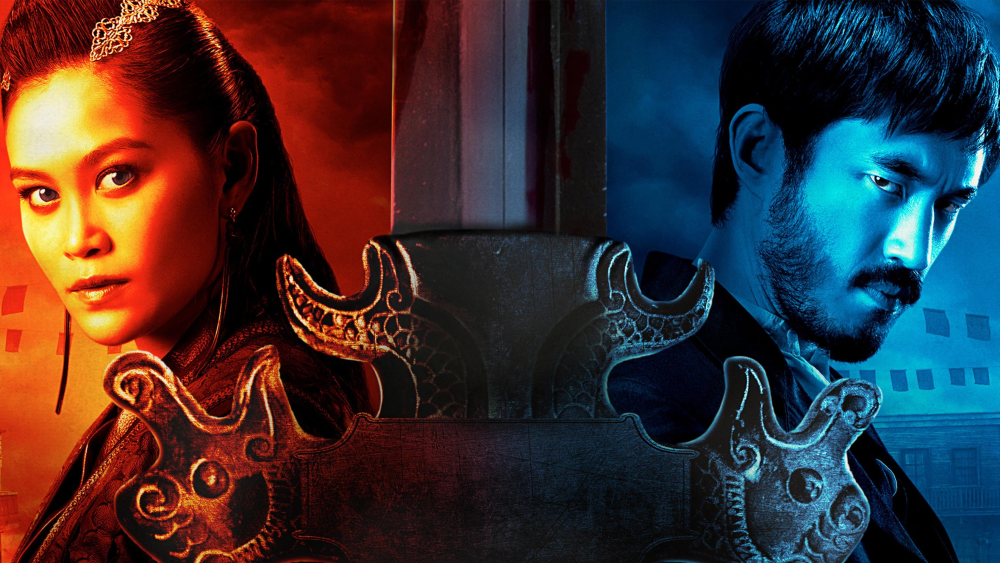Summary
Warrior remains one of the most criminally underrated shows on television, with its third season providing a real knockout for the newly rebranded Max.
This review of the Max series Warrior Season 3 does not contain spoilers.
When I first started watching and writing about Warrior when it debuted on Cinemax way back in 2019, I felt like a backpacker who had stumbled across Bigfoot.
I tried to tell people about it. I don’t think anybody believed that a show could be both inspired by Bruce Lee, boasting best-in-class fight choreography, while also being an incisive commentary on the Chinese American experience, rich in period detail. To be fair, it is farfetched when you put it like that.
Shows like Warrior usually get talked about. Word of mouth earns them a fanbase, and news gets around. But that didn’t seem to happen. After a second season that was better than the first, and set up a third, Cinemax unceremoniously canceled Warrior and that, it seemed, was that.
Now, though, it’s back, and on the newly rebranded Max, no less.
Warrior Season 3 review and plot summary
For the benefit of those not in the know, Warrior is set in San Francisco during the 19th-Century Tong Wars. In the Season 2 finale, simmering tensions between the city’s persecuted Chinese and Irish underclasses erupted into all-out riots, and the third season picks up in their aftermath. The Hop Wei, now led by a rapidly spiraling Young Jun (Jason Tobin), is still competing for territory with the Long Zii, but a series of draconian, punitive ordinances against Chinese citizens and businesses, drawn up by acting mayor Walter Buckley (Langley Kirkwood) and enforced by Sgt. Bill O’Hara’s (Kieran Bew) San Francisco Police Department, has Chinatown on the cusp of starvation.
Ah Sahm (Andrew Koji) has become a legend befitting a giant Bruce Lee-inspired mural of him in a wifebeater, wielding nunchucks, but Young Jun mistrusts him thanks to the revelation that the leader of the Long Zii, Mai Ling (Dianne Doan), is the estranged sister he crossed the Pacific in search of in the first place. Business isn’t booming, to put things mildly.
What is to be done? Well, various things, different for everyone, and together they comprise a jam-packed, energetic season that pulls double duty as both an exciting martial arts crime drama and a sharp historical commentary. The distinction between hero and villain is typically blurred, at least outside of cartoon evildoers like Buckley, and Warrior lives in those contentious spaces where fundamentally decent people are forced to take matters into their own hands.

Richard Lee (Tom Weston-Jones), for instance, has handed in his SFPD badge but still can’t resist the tug of what he perceives to be justice; Mai Ling wants to endear herself to white women so she can go into business with their husbands; Ah Toy (Olivia Cheng) is trying to escape life as a madame to settle down with her widowed white lover, Nellie Davenport (Miranda Raison); and Dylan Leary (Dean Jagger) tries to adapt to backroom politics while fighting with his fundamentally thuggish nature.
Underpinning all this is a simple enough concept – the American Dream, what it means and to whom, and how quintessentially “American” one must be to qualify for it. Are your rights, as some believe, defined entirely by where you were born or the color of your skin? Is upstart entrepreneurship and self-betterment not essential to the American national identity? Can someone with an Irish or Chinese accent ever be truly treated equally, or will they be forever consigned to a fate of xenophobic mistrust and persecution?
Is Warrior Season 3 good or bad?
These are big questions to be posited by a show that boasts the kind of fight choreography that this one does. You wouldn’t expect The Raid, for instance, to say anything meaningful about Indonesian politics or history, and it doesn’t remotely matter that it doesn’t. And yet Warrior is one of few shows that gets to have its cake and eat it, satisfying the baser pleasures of genre fans and the loftier expectations of discerning TV enthusiasts at the same time.
Is Warrior Season 3 worth watching?
What has always been true of Warrior is that it’s criminally underrated, and the third season proves it still has knockout power in its politics and balletic grace in its brawls and set pieces. Hopefully, its association with Max will earn it the attention and audience it deserves.
What did you think of Warrior Season 3? Comment below.
You can watch this series with a subscription to Max.
More Stories
- Where was Warrior Season 3 filmed? Locations Explained



